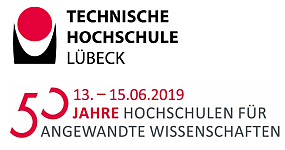Active Projects
Sustainable and climate adapted Water Management in Mining in the Southern African Region (WaMiSAR)- Hydrogeological Information System and Toolbox for Secure Water Management
WaMiSAR considers the use of water as a resource from the start to the end of mining activities. Adapted solutions will be developed for the various challenges for mine water management. The project aims at:
- the development of hydrological and hydrogeological baseline studies under the conditions of only limited data available,
- automated monitoring and modelling of water availability in the unsaturated zone of mine residue deposits as basis for
- adapted remediation measures for polluted surface water and groundwater including automated groundwater monitoring and
- creating a toolbox for sustainable and climate adapted water management in mining.
MEDSAL
The MEDSAL Project aims to secure the availability and quality of groundwater reserves in Mediterranean coastal areas, which are amongst the most vulnerable regions in the world to water scarcity and quality degradation. This will be addressed by providing a novel holistic approach, towards the sustainable management of coastal aquifers, which are affected by increased (single or multi-induced) groundwater salinization risk, especially under the variable meteo-climatic conditions of the Mediterranean and the rapidly changing socio-economic context.
- Deliver new tools for the identification of salinization sources and processes
- Derive, build and integrate coherent and robust datasets of critical parameters related to GWS
- Couple physical-based models (hydrogeological and hydrogeochemical), environmental isotopes, advanced geostatistical methods and artificial intelligence (AI) techniques (shallow and deep learning) to develop novel approaches and methods in the simulation and forecasting of GWS
ISOMED
The project ISOMED aims at developing innovative methods for estimating environmental flows with the ultimate objective of increasing water use efficiency and reaching sustainability. Sustainability is defined as resilient balance of water resources renewal and uses within hydrological systems under anthropogenic pressure at various scales.
- sites in Cyprus and Jordan
- novel recharge estimation methods
- participative soil water monitoring
- water flow accounting
Water Supply and Cult of the Heraion
German Research Foundation (DFG) 2017-2020, project in cooperation with DAI (German Archeological Institute) on the paleo- und modern hydrology and hydrogeology of the ancient temple of Hera site. The site is affected by recurrent inundation and flooding. The hydrological processes and water balance of the site is established in order to better understand the ancient water supply system, its vulnerability to droughts and floods and in order to establish the causes and mitigate the impact of flooding at the modern site. A bibliography of studies on this archeological site with special reference to the hydrological can be found at our Bibsonomy group.
- groundwater model of Heraion site
- coupling to hydrological model
- scenario analysis of ancient droughts and floods
- concept to reduce flooding
Completed Projects
- Project with SLR to develop an integrated water management model of the Omaruru Basin in Namibia
- Water Quality Accounts for the Swakop Basin: Project with SLR to develop a water quality accounting system – case study in the Swakop Basin / Namibia.
- Water Accounts: Methodology for Developping Water Accounts – Pilot and Capacity Building.
- SEA: Strategic Planning of Water Resources of the Erongo Region. BIWAC, GSN, DWA, BGR. October 2010 until March 2011.
- WADE
- ITER
- Guarani-Aquifer Project
- Groundwater Resources Re-Evaluation of Cyprus
- WAVES
- GREM – Groundwater Resources in the Eastern Mediterranean

